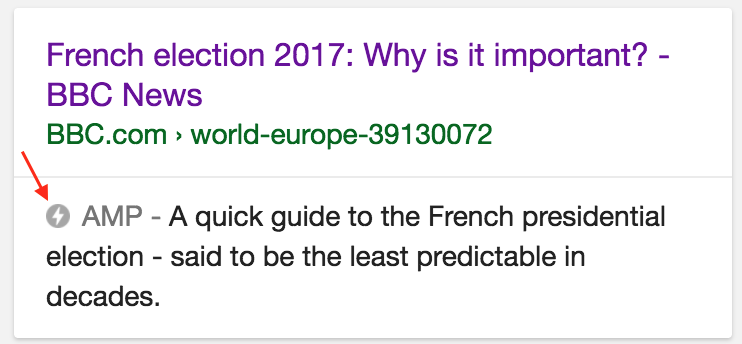I decided to disable Google AMP on his website

I have in common with Google's project Accelerated Mobile Pages (AMP) long history, but yesterday the Cup of patience overflowed.
I logged in to Twitter (in Safari on iPhone 6) and noticed that someone referred to my site by putting the link AMP. I said and pointed out the real link, but when clicked on it, I was redirected back to the AMP version of my page.
I copied the link generated by Twitter, and noticed that it looks like this:
https://t.co/6drRK5Cugz?amp=1Note the
amp=1 in the link. When press it, it returns the HTML page:the
<head>
<noscript>
<meta http-equiv="refresh"
content="0;URL=https://www.alexkras.com/simple-guide-to-finding-a-javascript-memory-leak-in-node-js/amp/"
/>
</noscript>
<title>https://www.alexkras.com/simple-guide-to-finding-a-javascript-memory-leak-in-node-js/amp/</title>
</head>
<script>
window.opener = null;
location
.replace(`https:\/\/www.alexkras.com\/
simple-guide-to-finding-a-javascript-memory-leak-in-node-js\
/amp\/`)
</script>The only purpose of this page is to redirect the reader to version AMP.
the
My problem with the AMP as a publisher
When the project AMP came along, I took it optimistically. His goal was to make the web faster, and I respect such a goal.
I VERY I do not like the publisher is that Google have cached the content of the AMP and gave it from its own cache, and under its own domain name. As a result, the links looked like this:
https://www.google.com/amp/www.bbc.co.uk/news/amp/39130072  in Other words, instead of issuing content from the BBC.co.uk, it came with Google.com.
in Other words, instead of issuing content from the BBC.co.uk, it came with Google.com.This approach has several problems:
-
the
- It "luring" users to Google. If they click “x” on the upper screenshot, it will be sent back to the Google search results. A normal redirect would send the user to the real BBC website, increasing the chances that he will remain on the site. Instead, the AMP makes it easier for users to return to Google. This is functionality that the browser is always available on the "Back" button. This is bad for publishers, but most likely inappropriate for the users themselves. the
- It makes the system vulnerable to abuse. For example, fake news when publishing via the AMP may seem reliable untrained reader as they come with Google.com — very respected domain.
ironically, that's NOT what makes Twitter
I think Twitter assumes that the content format AMP better for users. For this reason, they're just trying to provide service to the users and deliver content in the best format.
the
My problem with the AMP as a user
AMP consists of three components: the HTML, the JavaScript library and the cache. In the previous section I talked about their claims to the cache. Preimushestvo cache, as explained to me, Google & AMP, in that it allows Google (or any other platform) to preload content to the user. When the user clicks on a link AMP, Google will display the result almost instantly, as he had already received in the background.
And again, oddly enough, Twitter does not use this caching layer. Twitter suggests that mobile users prefer to read the rendered format AMP content, even if it was not preziraet in the cache.
For me, the problem is that I don't like to read content AMP. There are many small things that really annoy me in AMP.
For example:
the
not scrolling
the
it's Hard to share links
AMP makes it hard to share links to the original content.
Instead just go to the address bar and copy the link, the user needs click the special button to see the original URL. Then the user must click on the original URL, wait for the redirect and copy it from the address bar at the top.
note: whatever it was uncomfortable, but the button with the original link — a big step forward in the interface AMP. Initially, users had to manually remove the
https://www.google.com/amp/ from address. I am willing to go through these difficulties because I do not like to read content AMP, and because I want to make sure that the trust faithful to the source this link. I am sure that most users don't produce all of those steps. They simply copy the full link AMP, like
https://www.google.com/amp/www.bbc.co.uk/news/amp/39130072, and share it. My wife, for example, constantly sends me these links. It is indeed surprising that large publishers are not concerned about this fact as much as I do.the
Content AMP is usually divided into parts
Remember the days when we had to load a WAP page is a special web page created for mobile devices. Subscribe to AMP for the publisher — it's like a return to those days. Instead of using responsive design (when a website works well on all devices) publishers are forced to maintain two versions of each page — the regular version for larger devices and mobile phones that do not use Google, as well as the version of the AMP.
The advantage of AMP is that it imposes severe restrictions on the content, thereby ensuring it is fast loading. The problem with this approach is that in the AMP gets the content. For example, comments are often removed.
I also noticed that loading images AMP buggy. AMP tries to load the image only when it falls in scope for the user, and initially displays a white square. In my experience, it often happens that white square there instead of the image.
There are many other small nuances for different sites. For example, the comments of Reddit (a very important part of the site) are cached in the AMP. As a result, new comments, which are visible in the desktop version of Reddit do not appear in the version of the AMP until the cache for that page will not be updated.
the
AMP required for users
The publisher decides whether he wants to add support AMP for your website. But users do not have the ability to disable AMP.

It would be great if Google provided the user settings with the option disable rendering results AMP. Unfortunately, even if they add such option, it won't help much in terms of when Twitter or Facebook support AMP on the server.
the
Why I originally hooked up the AMP for your website
I originally hooked up the AMP to your website for one reason only — a good place in Google search results.
Shortly before the appearance of the AMP, Google announced that it will lower the results sites that are not quickly displayed on mobile devices. My website was responsive design, but I was not sure that it is optimized for mobile devices. So when I learned about the presence of AMP plugin for WordPress, I immediately hooked it up. And while Google has officially stated that support AMP does not affect the place in the search results, I decided that she was not hurt.
Another advantage of the AMP to rank in the search was that only sites with the support of the AMP was displayed in "carousel" on Google. Although my website is unlikely to fall into the "carousel", but this possibility needs to be important for major publishers.

the
It applies
I thought about disabling the AMP when I first found out that Google loads my site from cache, but decided against it for two main reasons:
-
the
- I wanted to keep the position in the search.
I would leave the AMP as an option for those readers who need it.
What I didn't realize the history with Twitter, is that activating the AMP I agree that other sites can choose how they want to refer to my content.
Less than two weeks ago, I wrote:
"I Have no problem with the AMP library. I don't care what Facebook Instant Articles or Pinterest use the AMP".
How wrong I was. I thought it didn't bother me until I saw your link on Twitter with an indication of the rendering in AMP format.
the
Users do not need it
A few weeks ago, someone on Twitter accused me that I don't like AMP because I have the privilege of fast Internet. Although I have really fast Internet, I don't think I would have used AMP even on a slow connection. I would rather have disabled JavaScript in your browser (maybe even images, if it's that bad). This may not work for all sites, but my site is being rendered and cached on the server side. Users only need to download the HTML a bit to see any page. Why force them to download library AMP JavaScript?
Of course, we have the AMP, because Google wants users to see ads, which is virtually absent when JavaScript disabled. I also want users to see ads (Google ads, by the way), so I pay the cost of the server. However, I will be happy to allow the person on a bad connection to abandon this part of the transaction.
In any case, to test your theory I opened Chrome Developer Tools to throttle its connection to the maximum of the slow version and have JavaScript disabled. I discovered the article on their website, and it loaded the three seconds. I tried to use Google search, and it was blazing fast, but there were no links AMP. Of course not, because they are shown only when JavaScript is enabled.
I went back to JavaScript (while preserving low network speed) and tried to search any content of the AMP. Took more than 10 seconds just download the "carousel" with the news.
As expected, static content (no JavaScript) is still on top.
the
Please speak up
I first wrote about my concerns about the AMP nine months ago. That article attracted some attention on Hacker News, and the guys from Google AMP Department actively participated in the discussion on Hacker News and the comments to my article. They even went so far as to invite me to lunch to get to know about my fears.
Two weeks ago, I wrote a similar article titled "Please do Google AMP optional". It's got a lot more attention to Hacker News than the original article (included in the Top 300 posts in the history), but still does not affect the position of Google AMP.
Perhaps Google employees AMP realize that they are quite a bit of win if you listen to a small part of the community of developers who don't like AMP. They know that we are in the minority, and we are not their target audience. My mom and my wife don't go on Hacker News. They don't know what AMP and not particularly concerned with the problems of the open web.
At the same time in Google a lot of engineers, for which the open web is important. I was really surprised that I don't hear them speaking against AMP. I can assume that this project received the blessing at the top, so politically dangerous to make waves.
However, those of us who don't like the AMP needs to fight.
You have a WordPress website? Disconnect the AMP or leave it off if it is disabled.
You work for the publisher, which enabled AMP? Try to explain to your employer the danger of the AMP, as it may lose traffic and brand awareness.
You just a web developer? Try to do more quick sites and avoid overloading scripts. There are many reference resources that will help you to cope with this problem (for example, see notes from the Chrome Dev Summit). It will be easier to deal with the AMP, if the majority of the sites will load quickly even on slower connections.
The decision to disable the AMP did not come immediately. Fortunately, to disable it on WordPress, it was almost as simple as plug. Simply deactivate the plugin. Less than 24 hours later, Google stopped showing the AMP version of my site in their search results.
Supplement. Here I wrote down specific steps that have done, including the installation of a redirect for the old links AMP: https://www.alexkras.com/how-to-disable-amp-on-wordpress/.
Comments
Post a Comment